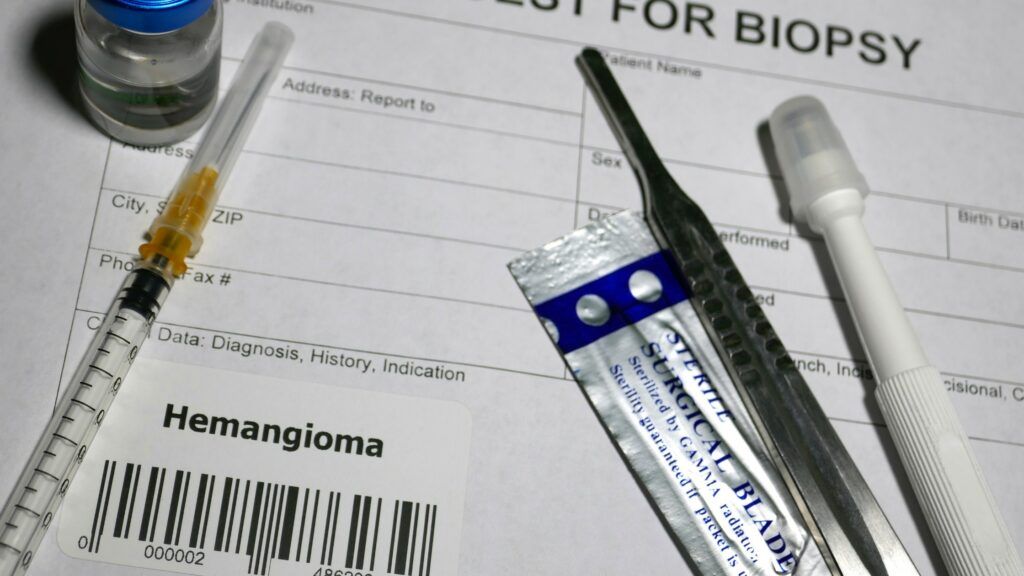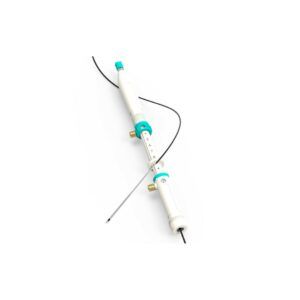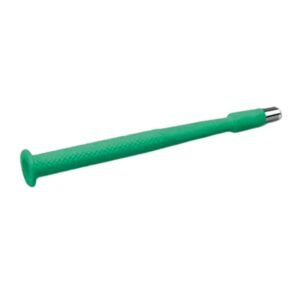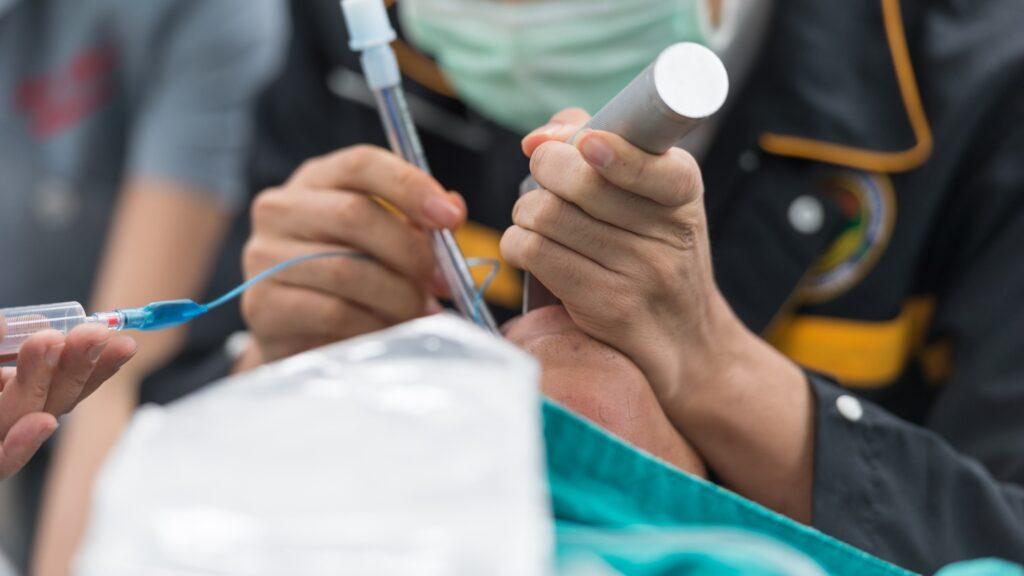Biopsy devices are pivotal in diagnosing and managing various medical conditions, particularly cancer. These advanced tools allow healthcare professionals to extract tissue samples from patients for further examination, enabling precise diagnosis and targeted treatment plans. As technology advances, biopsy devices have become more sophisticated, offering enhanced accuracy, safety, and ease of use. This blog post delves into the different types of biopsy devices, their benefits, selection criteria, maintenance, and the latest innovations in the field, highlighting their critical role in modern medicine.
Types of Biopsy Devices
- Needle Biopsy Devices: These are the most common types, including fine-needle aspiration (FNA) and core needle biopsy (CNB). FNA uses a thin, hollow needle to extract small tissue samples, while CNB employs a larger needle to obtain a core of tissue.
- Endoscopic Biopsy Devices: Used in conjunction with an endoscope, these devices are crucial for internal organ biopsies such as those of the stomach, lungs, and intestines.
- Surgical Biopsy Devices: These are used during surgical procedures to remove larger tissue samples or entire lumps, often when less invasive methods are insufficient.
- Vacuum-Assisted Biopsy Devices: These devices use vacuum suction to collect multiple tissue samples during a single needle insertion, reducing the need for repeated procedures.
- Image-Guided Biopsy Devices: These include ultrasound-guided, MRI-guided, and CT-guided biopsy devices, which utilize imaging technology to precisely locate and sample abnormal tissues.
Benefits of Biopsy Devices
- Accuracy: Advanced biopsy devices provide precise tissue sampling, leading to accurate diagnoses and effective treatment plans.
- Minimally Invasive: Many biopsy procedures are minimally invasive, reducing patient discomfort, recovery time, and risk of complications.
- Early Detection: Biopsies are essential for early detection of cancers and other diseases, significantly improving patient prognosis.
- Versatility: With various types available, biopsy devices can be tailored to different medical conditions and anatomical sites, ensuring comprehensive diagnostic capabilities.
Criteria for Selection of Biopsy Devices
- Procedure Type: The specific medical procedure and the area of the body being biopsied determine the type of biopsy device needed.
- Accuracy: Devices with advanced imaging guidance and precision sampling capabilities are preferred for accurate diagnosis.
- Patient Comfort: Minimally invasive devices that reduce pain and recovery time are crucial for patient comfort and compliance.
- Ease of Use: Devices that are easy to operate and integrate with existing medical equipment streamline the biopsy process.
- Cost-Effectiveness: Balancing quality and cost is essential for healthcare facilities to provide effective and sustainable care.
Single-Use vs. Reusable Biopsy Devices – Key Differences and Functions
Both single-use and reusable biopsy devices have distinct advantages, and the choice between them depends on specific clinical needs, budget considerations, and environmental policies.
Single-Use Biopsy Devices
- Precision and Sterility: Single-use biopsy devices are designed for one-time use, ensuring maximum sterility and reducing the risk of cross-contamination. These devices are pre-sterilized and disposable, making them an excellent choice for maintaining a high level of hygiene in medical settings.
- Convenience and Cost: While potentially more expensive per use, single-use devices eliminate the need for cleaning and sterilization, saving time and resources in busy healthcare environments. They are especially useful in high-volume settings where quick turnaround is essential.
Reusable Biopsy Devices
- Durability and Cost-Effectiveness: Reusable biopsy devices are designed for multiple uses, offering long-term cost savings. These devices are made from durable materials that can withstand repeated cleaning and sterilization cycles, making them a sustainable choice for healthcare facilities.
- Environmental Impact: Reusable devices reduce medical waste, contributing to environmentally friendly practices. However, they require rigorous cleaning and sterilization protocols to prevent infection, demanding meticulous maintenance and handling.
Latest in Biopsy Devices
The latest biopsy devices incorporate cutting-edge technology to enhance diagnostic accuracy and patient care.
- Robotic-Assisted Biopsy Devices: These devices use robotic technology to perform precise and controlled biopsies, especially in hard-to-reach areas.
- Smart Biopsy Needles: Equipped with sensors and AI technology, these needles can provide real-time feedback during the biopsy procedure, improving accuracy.
- Liquid Biopsy Devices: These non-invasive devices analyze blood samples to detect cancer-related biomarkers, offering an alternative to traditional tissue biopsies.
Innovation continues to drive the evolution of biopsy devices, introducing new features and capabilities.
- AI-Powered Biopsy Devices: Artificial intelligence is being integrated into biopsy devices to analyze tissue samples in real time, providing immediate diagnostic insights.
- 3D Imaging Technology: Advanced 3D imaging is enhancing the accuracy of biopsy procedures by providing detailed views of the target tissue.
- Wearable Biopsy Devices: Research is underway on developing wearable devices that can perform continuous monitoring and biopsies, potentially revolutionizing cancer detection and monitoring.
Maintenance Guidance for Reusable Biopsy Devices
Maintenance is a crucial factor in case of Reusable Biopsy Devices. These devices are built following certain norms and a thorough procedure of sterilization should be undertaken before the next use.
- Regular Cleaning: Devices should be cleaned thoroughly after each use to prevent contamination and infection.
- Routine Calibration: Regular calibration ensures that devices maintain their precision and accuracy over time.
- Timely Repairs: Any malfunctioning parts should be repaired or replaced promptly to avoid compromising patient safety.
- Compliance with Standards: Devices should adhere to regulatory standards and guidelines to ensure they meet safety and performance criteria.
Spotlight on the Top Manufacturers
Medorah Meditek Pvt. Ltd
Medorah Meditek Pvt. Ltd., established in India, is renowned for designing and developing cost-effective medical devices that conform to international standards. With a state-of-the-art R&D center and manufacturing setups, Medorah ensures impeccable quality through strict regulatory guidelines, offering products that guarantee safety and reliability. Medorah’s commitment to quality healthcare is exemplified by its diverse team of engineers and specialists, driving innovation in Gastroenterology.
The PIVOT® Endoscopic Ultrasound Needle, manufactured by Medorah Meditek Pvt. Ltd., is an advanced biopsy device designed for precise sampling during endoscopic ultrasound examinations. This needle is engineered to access hard-to-reach lesions in organs like the pancreas, liver, and lymph nodes, providing accurate and reliable tissue samples. Featuring a thin, flexible design with a sharp tip, it ensures minimal trauma and smooth penetration, facilitating successful biopsy procedures and enhancing diagnostic capabilities
Medorah Meditek’s commitment to quality and cost-effectiveness makes the PIVOT® Endoscopic Ultrasound Needle an ideal choice for healthcare facilities aiming to enhance their diagnostic capabilities. Competitively priced and manufactured to international standards, this device provides excellent value and reliability, ensuring superior performance in the medical field.
Ribbel International Limited
Ribbel International Limited, a leading name in the surgical device industry, has been manufacturing premium quality medical and surgical products for over 25 years. Renowned for its wide range of products, including foley balloon catheters, surgical blades, safety scalpels, and stitch cutters, Ribbel is certified by DNV (Det Norske Veritas) Rotterdam and holds CE Marking Certification by DNV Norway. With accolades like the BEST DISPOSABLE PRODUCT MANUFACTURER OF THE YEAR 2016 & 2015, Ribbel stands as a dominant player in the global market.
The Biopsy Punch from Ribbel is an essential tool in the fight against cancer and other diseases. Designed for precision, it enables healthcare professionals to obtain accurate tissue samples with minimal discomfort to patients. Featuring a safety cap for protection and a clear cap for visual inspection, Ribbel’s Biopsy Punch ensures both safety and accuracy. Its stainless steel circular ground blade and seamless tube sharp blade offer clean, precise cuts.
Conclusion
Biopsy devices are indispensable tools in modern medicine, offering precise diagnostic capabilities and contributing to improved patient outcomes. With continuous advancements in technology, these devices are becoming increasingly sophisticated, ensuring higher accuracy, safety, and ease of use. By partnering with platforms like Medzell, healthcare providers can stay at the forefront of medical innovation, ensuring they have access to the best biopsy devices available. By offering a robust B2B platform, Medzell facilitates efficient demand-supply management, helping healthcare facilities access the latest biopsy devices at competitive prices.




